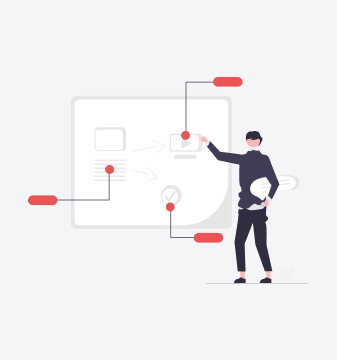Data science has become a highly sought-after field in today’s digital age. As organizations across industries recognize the value of data-driven insights, professionals skilled in data science are in high demand. If you’re considering building a specialized career in data science, this data science career roadmap will guide you through the essential steps to success.
Understand the Field of Data Science
To embark on a successful data science career, it’s crucial to clearly understand what the field entails. Data science combines elements of statistics, mathematics, and computer science to extract meaningful insights from data.
It involves tasks such as data collection, cleaning, analysis, and interpretation. Familiarize yourself with the key concepts and methodologies used in data science, including machine learning, statistical modeling, and data visualization.
Acquire the Necessary Skills
Building a solid foundation of skills is essential for a specialized data science career. Here are some key skills to focus on:
- Programming: Learn programming languages commonly used in data science, such as Python or R. These languages provide powerful tools and libraries for data manipulation, analysis, and machine learning.
- Statistics and Mathematics: Strongly understand statistical concepts, probability theory, and linear algebra. These mathematical foundations form the backbone of many data science techniques.
- Data Manipulation and Visualization: Gain proficiency in data cleaning, preprocessing, and transformation techniques. Learn how to effectively visualize data using tools like Matplotlib, ggplot, or Tableau. Clear and visually appealing visualizations help communicate insights effectively.
- Machine Learning: Familiarize yourself with machine learning algorithms and techniques. Understand both the theoretical concepts and practical implementation of algorithms like regression, classification, clustering, and deep learning.
- Communication and Presentation: Develop strong communication skills to convey complex technical concepts to non-technical stakeholders. Presenting data-driven insights in a clear and compelling manner is crucial for driving organizational impact.
Learn from Real-World Projects
Theory alone is not enough to master data science. Engage in hands-on projects to gain practical experience and showcase your skills. Seek out publicly available datasets or participate in online competitions like Kaggle. Building and deploying models in real-world scenarios will enhance your understanding and boost your portfolio.
Continuous Learning
Data science is a rapidly evolving field. Stay updated with the latest trends, techniques, and tools by regularly reading industry publications, attending conferences, and participating in online courses. Join data science communities and engage in discussions with fellow professionals to broaden your knowledge and network.
Build a Strong Portfolio

Creating a portfolio is essential for showcasing your expertise to potential employers. Include your projects, code samples, and visualizations that demonstrate your ability to extract valuable insights from data. Highlight the business impact and outcomes achieved through your work.
Networking and Professional Development
Connect with professionals in the data science field through networking events, conferences, and online communities. Engage in discussions, seek mentorship, and explore collaboration opportunities. Building a strong professional network can provide valuable guidance, support, and job prospects.
Conclusion
Building a specialized career in data science requires a combination of technical skills, practical experience, continuous learning, and effective communication. Following this roadmap will enable you to embark on a successful journey in this exciting field. Remember to stay curious, seek out new challenges, and adapt to the ever-changing data science landscape. Good luck!




